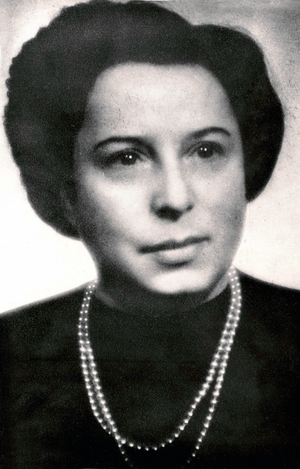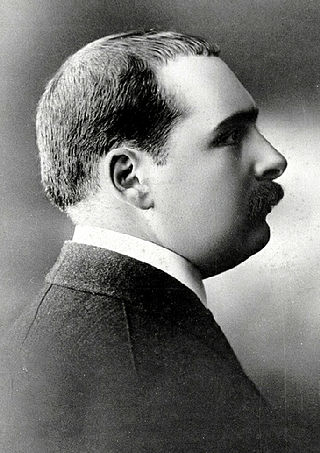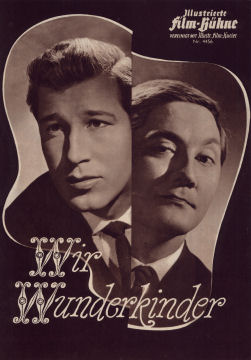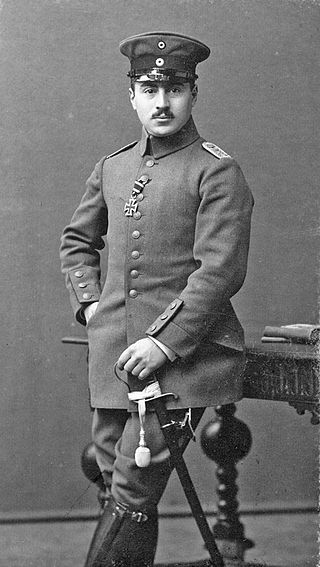
Wilhelm Johann Harald Hoegner was the second Bavarian minister-president after World War II, and the father of the Bavarian constitution. He has been the only Social Democrat to hold this office since 1920.

Franz Bonaventura Adalbert Maria Herzog von Bayern, commonly known by the courtesy title Duke of Bavaria, is the head of the House of Wittelsbach, the former ruling family of the Kingdom of Bavaria. His great-grandfather King Ludwig III was the last ruling monarch of Bavaria, being deposed in 1918.

Ernst Franz Sedgwick Hanfstaengl was a German American businessman and close friend of Adolf Hitler. He eventually fell out of favour with Hitler and defected from Nazi Germany to the United States. He later worked for Franklin D. Roosevelt and was once engaged to the author Djuna Barnes.

Albert Günther Göring was a German engineer, businessman, and the younger brother of Hermann Göring. In contrast to his brother, Albert was opposed to Nazism, and helped Jews and others persecuted in Nazi Germany. He was shunned in post-war Germany because of his family name, and died without any public recognition, receiving scant attention for his humanitarian efforts until decades after his death.

Sport Boys Association, commonly referred to as Sport Boys or simply Boys, is a Peruvian football club based in the port city of Callao. It was founded on 28 July 1927. Its classic and historic rival is the Atlético Chalaco against whom dispute the Clasico Porteño derby of Callao. It is considered the fourth most important club in the history of Peruvian football as they have won 6 national titles and have the largest number of international appearances after Universitario, Sporting Cristal and Alianza Lima, teams of Lima.

German Peruvians are Peruvian citizens of full or partial German ancestry. In general, the term is also applied to descendants of other German-speaking immigrants, such as Austrians or the Swiss, or to someone who has immigrated to Peru from German-speaking countries.
Alexander Franz Anton Lion was the co-founder of the German Scout Movement.

Gisi Fleischmann was a Zionist activist and the leader of the Bratislava Working Group, one of the best known Jewish rescue groups during the Holocaust. Fleischmann was arrested on 15 October 1944 and was murdered in the Auschwitz concentration camp three days later.

José de la Riva-Agüero y Osma, 6th Marquess of Montealegre de Aulestia and 5th of Casa-Dávila was a Peruvian historian, writer and politician who served as Prime Minister of Peru, Minister of Justice and Mayor of Lima. His political beliefs changed during his life, evolving from liberalism at his youth to a staunch conservatism rooted in Christianity. In the Biographical Dictionary of the Extreme Right Since 1890, he was listed as one of the leading figures of the far right in Peru.

Wir Wunderkinder is a 1958 West German comedy film directed by Kurt Hoffmann and starring Hansjörg Felmy and Robert Graf. The black-and-white film is also known in English as Aren't We Wonderful?.

Madeleine Truel, was a Peruvian woman of French parentage who fought in the French Resistance. The exact date of Madeleine Truel's alliance with the French Resistance is unknown. She worked as a document forger. She was captured in 1944 and was tortured to extract information without success, following which she was sent to Sachsenhausen concentration camp in 1945. She died in Stolpe (Germany) on 3 May 1945, after the so-called "death march", a few hours before the Russian troops arrived. Her full name, Madeleine Blanche Pauline Truel Larrabure, appears on a monument in homage to all those who were deported from France and perished during the Second World War.

Ernst Moritz Hess was a baptized German Jew who served in the Imperial German Army during the First World War. He commanded the company of the Bavarian Reserve Infantry Regiment 16 in which Adolf Hitler served during the war. During the inter-war period he served as a judge before being forced out of office after the passing of the Nuremberg Laws by the Nazis in 1935, as he was classified as a "full-blooded Jew" due to his mother being Jewish, even though he was baptised a Protestant.

Between Yesterday and Tomorrow is a 1947 German drama film directed by Harald Braun and starring Hildegard Knef, Winnie Markus and Sybille Schmitz.

The People's State of Bavaria was a short-lived socialist state in Bavaria from 1918 to 1919. The People's State of Bavaria was established on 8 November 1918 during the German Revolution, as an attempt at a socialist state to replace the Kingdom of Bavaria. The state was led by Kurt Eisner until his assassination in February 1919. Its government under Johannes Hoffmann went into exile in Bamberg when the rival Bavarian Soviet Republic was formed on 6 April 1919. The People's State of Bavaria was dissolved upon the establishment of the Free State of Bavaria on 14 August 1919.

Adolf Henryk Silberschein, also known as Abraham Silberschein was a Polish-Jewish lawyer, activist of the World Jewish Congress, Zionist, member of the Polish Sejm (1922–27). During the Holocaust he was a member of the Ładoś Group also called the Bernese Group, an informal cooperation of Jewish organizations and Polish diplomats who fabricated and smuggled illegal Latin American passports to occupied Poland, saving their holders and their families from immediate deportation to German Nazi death camps.

The Embassy of Peru in Berlin is the foremost diplomatic mission of the Republic of Peru in Germany. The embassy is based in Taubenstraße, Berlin-Mitte; the ambassador is Augusto Arzubiaga.

Ernesto Montagne Markholz was a Peruvian military officer, diplomat, and politician. He was Minister of Foreign Affairs in the cabinet of Lieutenant Colonel Luis Sánchez Cerro (1930–1931). In the second government of Óscar R. Benavides, he served as Minister of Justice, Instruction, Worship and Charity (1934–1935), Minister of Public Education (1935–1939) and President of the Council of Ministers (1936–1939). He was also a senator of the Republic (1939–1948) and President of the Senate (1939–1941).
Portugal was officially neutral during World War II and the period of the Holocaust in German-occupied Europe. The country had been ruled by an authoritarian political regime led by António de Oliveira Salazar but had not been significantly influenced by racial antisemitism and was considered more sympathetic to the Allies than was neighbouring Francoist Spain.

On April 1, 1980, six Cuban citizens made their way into the Peruvian embassy in Havana, Cuba, instigating an international crisis over the diplomatic status of around 10,000 asylum-seeking Cubans who joined them over the following days. The Peruvian ambassador, Ernesto Pinto Bazurco Rittler, spearheaded the effort to protect Cubans, most of whom were disapproved of by Fidel Castro’s regime and were seeking protection at the embassy. This episode marked the start of the Cuban refugee crisis, which was followed by a series of diplomatic initiatives between various countries in both North and South America that tried to organize the fleeing of people from the island of Cuba to the United States and elsewhere. The embassy crisis culminated with the substantial exodus of 125,266 Cuban asylum-seekers during the Mariel Boatlift.
José Maria Barreto Bustíos was a Peruvian diplomat in Switzerland who is best known for issuing passports to save Jews during World War II.

















